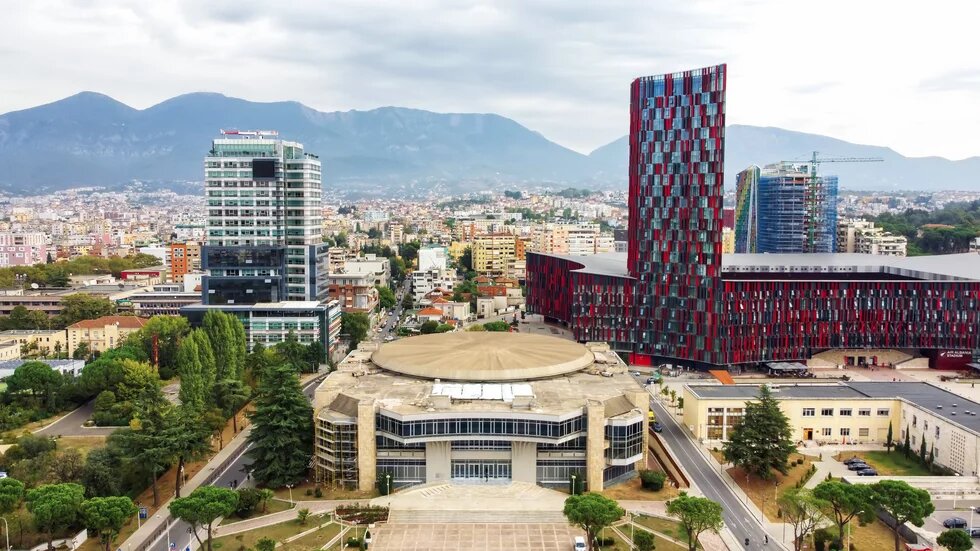On 11 May 2025, Albania will hold parliamentary elections, the first since officially opening EU accession negotiations. While some significant changes mark this election—most notably, diaspora voting and partial candidate list openness—major systemic factors remain unchanged. The Socialist Party (SP), in power since 2013, appears poised for an unprecedented fourth mandate.

Diaspora Vote: A Myriad of Questions
A landmark 2022 Constitutional Court ruling granted Albanians abroad the right to vote, addressing a long-debated issue amid continued emigration. However, implementation has been fraught with challenges. Legislative gaps persist, such as funding for return postage of ballots. Additionally, the registration process has revealed documentation hurdles, highlighting the difficulty of resolving longstanding issues in such a short timeframe. So far, approximately 161,000 Albanian citizens living abroad have applied for voting rights, with 127,000 approved. The impact of the diaspora vote remains uncertain, hence its influence on Albania’s traditionally stagnant political scene will be something to stay tuned for.
Candidate Lists: One Third That Rules Them All
Another ongoing debate surrounds the nature of candidate lists. Traditionally, party leaders determined both the candidates and their positions on the list, effectively deciding election outcomes in advance. Recent electoral code changes introduce an element of preferential voting, but with a crucial limitation: the top third of each list remains closed, granting party leaders absolute control over these key positions. While the remaining two-thirds allow for competition, this system ultimately benefits party leadership, ensuring their loyalists secure safe spots while fostering internal rivalry to boost overall vote share. Internal party democracy remains weak, with power still concentrated at the top.
A Fractured and Feeble Opposition
The opposition enters the race bruised and divided. Democratic Party (DP) leader and former Prime Minister Sali Berisha, sanctioned by the U.S. and U.K., has been released from house arrest, slightly reinvigorating his base. Meanwhile, Freedom Party leader and former President Ilir Meta remains in detention. After 12 years in opposition and internal rifts, these parties are at a significant disadvantage. Meanwhile, the ruling Socialist Party continues to leverage its extensive network of “patronage associates” for voter mobilization, a strategy reportedly extending to key diaspora communities abroad. Reports of state resource misuse and declining media freedom further illustrate Albania’s fragile democratic environment.
New Parties: A Chance for Disruption?
Several new political parties, led by younger figures with distinct profiles, have entered the race. A minority of these offer clear ideological differentiation from the traditional parties.
These include “Levizja Bashke”, former activist organization with a strong leftist ideological profile; the Party “Shqiperia behet” (Albania can succeed)- originating from another activist group, “Thurje” (Hashtag) know for initially submitting several cases for investigation to SPAK, as well as “Mundesia” (The opportunity) led by former DP member and well known entrepreneur Agron Shehaj.
Some polling suggests they may secure parliamentary seats, a crucial milestone for public funding and media visibility. However, internal divisions have already weakened these movements, diminishing their credibility among undecided voters. Infighting continues to plague Albania’s political landscape, preventing fresh alternatives from gaining traction.
The Fourth Mandate: Embracing Transactionalism
Amid this fragmented landscape, Prime Minister Edi Rama remains secure and thriving. Having built strong ties with key EU leaders through transactional agreements—such as the migrant reception deal with Italy—he faces the election without trepidation. Further cementing international ties, his government recently granted Jared Kushner strategic investor status, paving the way for resort development on Albania’s Sazan Island. Domestically, pre-election incentives, including pension bonuses and administrative penalty pardons, bolster his standing.
No government in post-communist Albania has secured a fourth mandate—until Rama’s third term, even a third had never been achieved. This historic milestone raises concerns about political entrenchment and democratic backsliding.
A painful thorn on the side
The arrest of the mayor of Tirana and one of the heads of the campaign for the socialist party in the capital, Erion Veliaj, on charges of corruption has shaken but not toppled the socialist confidence. It has emboldened Rama to be more vocal in his usually muted criticism of the “new justice”. Erion Veliaj has been seen by many also as a sort of future heir to take charge of the Socialist Party, something that after his arrest seems highly unlikely.
Veliaj has proven to be an excellent campaign factor, with his own distinct energetic profile rallying a large support behind the SP. The elections will reveal also if the SP will be able to mobilize enough in order to mitigate this risk and hence keep its stellar numbers in the largest region. Tirana produces a whopping 37 out of the total of 140 MPs in the Albanian parliament.
Last but Not Least: A Critical Test for Democracy
This election will serve as a crucial test of Albania’s democratic credibility. Failure to ensure free and fair elections could jeopardize EU accession prospects, undermining progress under cluster 1. Albania has made significant strides in judicial reform, with the Special Prosecutor’s Office (SPAK) successfully prosecuting high-profile corruption cases, including mayors, MPs, ministers, and even a former president.
SPAK has announced a special task force to monitor electoral crimes. However, elections have long been Albania’s Achilles’ heel. Unlike Kosovo, which has consistently held uncontested votes, Albania’s history of irregularities raises concerns about post-election stability.
The role of organized crime and the misuse of state resources in influencing the outcome will be key indicators of Albania’s democratic maturity or lack of thereof. The international community, particularly the EU, should be watching closely.
This article first appeared here: ba.boell.org. The views and opinions in this article do not necessarily reflect those of Heinrich-Böll-Stiftung European Union.


